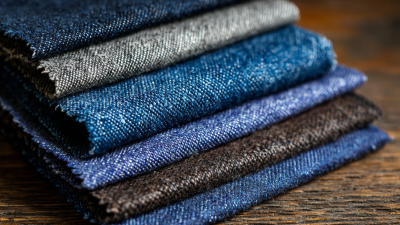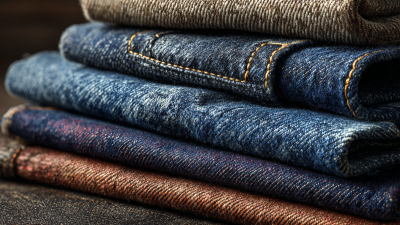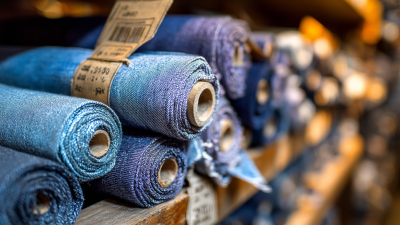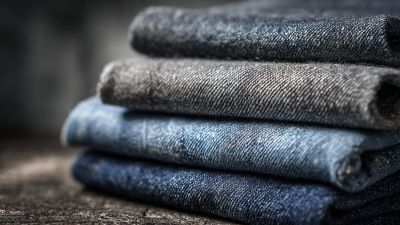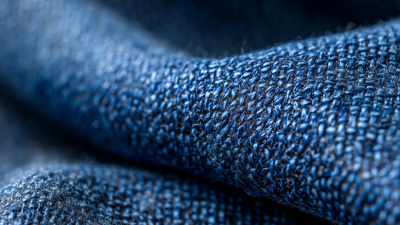The fashion industry is at a pivotal crossroads, where sustainability and innovation must intersect to create a future that respects both the planet and consumer needs. One standout material making waves in this arena is Recycled Denim Fabric, which has emerged as a popular alternative for brands aiming to reduce their environmental footprint. According to a 2023 report by the Sustainable Apparel Coalition, using recycled textiles like denim can lower water usage by up to 90% compared to conventional fabric production. This statistic underscores the critical role Recycled Denim Fabric plays in lessening the fashion industry's environmental impact.
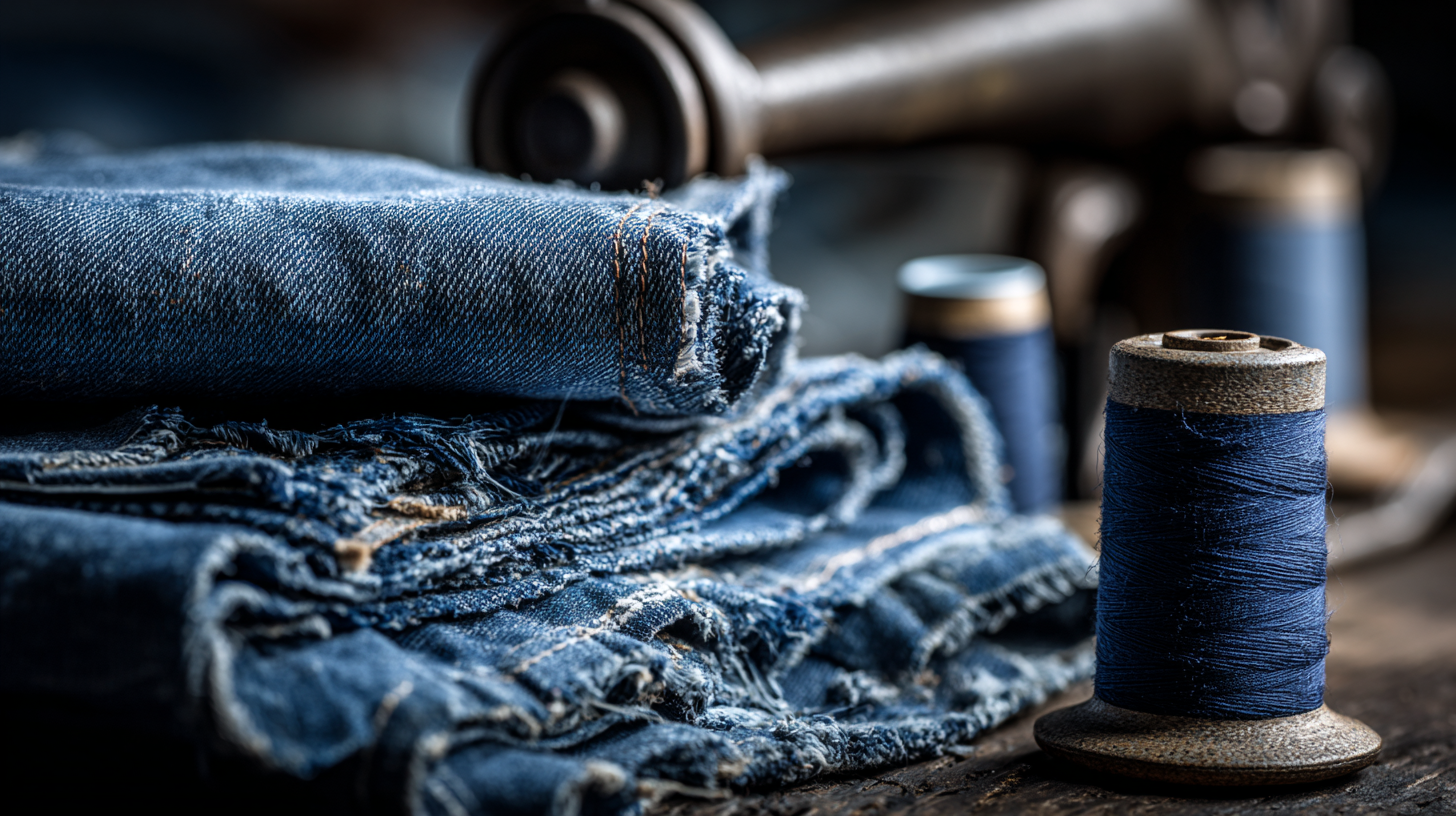
Industry expert Dr. Emily Chen, a leading figure in sustainable textile research, emphasizes the importance of this material: "Recycled Denim Fabric is not just a trend; it's a necessary evolution in how we think about fashion. It demonstrates that we can be stylish while prioritizing the health of our planet." With increasing consumer awareness regarding environmental issues, the demand for sustainable alternatives continues to rise. Brands incorporating Recycled Denim Fabric into their collections are not only appealing to eco-conscious consumers but are also paving the way for a more sustainable textile industry. As we explore the top five benefits of using Recycled Denim Fabric, it becomes clear why this material is integral to the future of sustainable fashion.
The environmental impact of recycled denim fabric in the fashion industry is significant and multifaceted. According to a report by the Ellen MacArthur Foundation, the fashion industry is responsible for 10% of global greenhouse gas emissions, with denim production being a substantial contributor due to water-intensive cotton farming and energy-intensive manufacturing processes. Utilizing recycled denim can mitigate these effects; for instance, recycling one pair of jeans saves about 2,500 liters of water and reduces CO2 emissions by up to 80% compared to producing new denim, as highlighted by the U.S. Environmental Protection Agency.
Moreover, the incorporation of recycled denim fabric fosters a circular economy within the fashion sector. The Global Fashion Agenda states that only 1% of materials used to produce clothing are recycled into new garments. By promoting recycled denim, brands not only lessen the reliance on virgin materials but also promote better waste management practices. The reuse of denim fibers contributes to reducing landfill waste and preserving natural resources, supporting a more sustainable approach to fashion that can have lasting ecological benefits.
The innovative techniques for processing recycled denim into fashionable apparel are revolutionizing the sustainable fashion industry. By employing cutting-edge technologies such as laser treatment, enzymes, and textile recycling processes, brands are able to transform worn-out jeans into high-quality fabrics.
Laser technology not only enhances the aesthetic appeal but also reduces water usage by up to 90%. This approach allows designers to create unique patterns and fades while maintaining the integrity of the denim fibers.
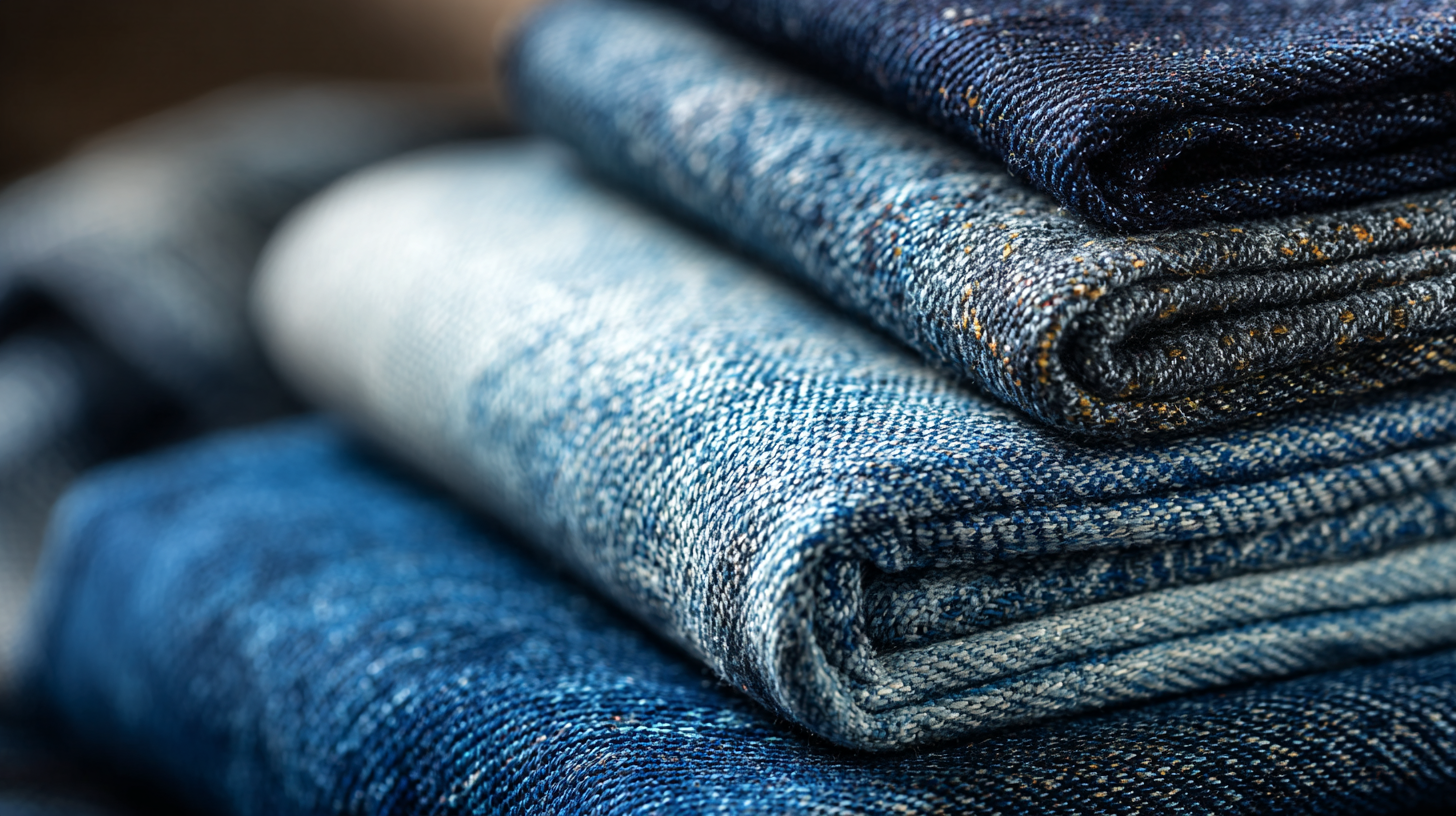 Another significant method involves the use of enzymatic processes that break down denim's cellulose fibers without harming the environment. This enzymatic treatment makes it possible to recycle denim scraps into new fabrics, promoting a circular economy within the fashion industry. Additionally, some brands are integrating 3D knitting technologies, allowing them to produce garments with minimal waste. This not only conserves resources but also leads to the creation of sustainable and stylish pieces that appeal to eco-conscious consumers, illustrating the potential of recycled denim in the modern wardrobe.
Another significant method involves the use of enzymatic processes that break down denim's cellulose fibers without harming the environment. This enzymatic treatment makes it possible to recycle denim scraps into new fabrics, promoting a circular economy within the fashion industry. Additionally, some brands are integrating 3D knitting technologies, allowing them to produce garments with minimal waste. This not only conserves resources but also leads to the creation of sustainable and stylish pieces that appeal to eco-conscious consumers, illustrating the potential of recycled denim in the modern wardrobe.
The cost-effectiveness of using recycled denim fabric in sustainable fashion collections is a significant advantage for both designers and consumers. By repurposing old denim, brands can reduce the cost of raw materials, as the production of recycled fabric often utilizes less energy and water compared to creating new denim from scratch. This not only lowers operational expenses but also enables brands to offer more competitively priced products, appealing to a broader audience without compromising their commitment to sustainability.
Furthermore, the trend of sustainable fashion is gaining momentum, and consumers are increasingly willing to pay for environmentally responsible products. By incorporating recycled denim, brands can position themselves advantageously in the market, attracting eco-conscious shoppers. The use of recycled materials can also enhance a brand's story, promoting transparency and ethical practices that resonate with consumers. Ultimately, the adoption of recycled denim not only supports sustainability but also paves the way for innovative business models that prioritize both profit and planet.
The rising demand for sustainable denim products reflects a significant shift in consumer behavior towards environmentally friendly fashion choices. Today’s consumers are increasingly aware of the environmental impact of their purchases, fueling a preference for brands that prioritize eco-friendly practices. This heightened awareness has led to a growing interest in recycled denim fabrics, which not only reduce waste but also minimize the use of virgin materials.
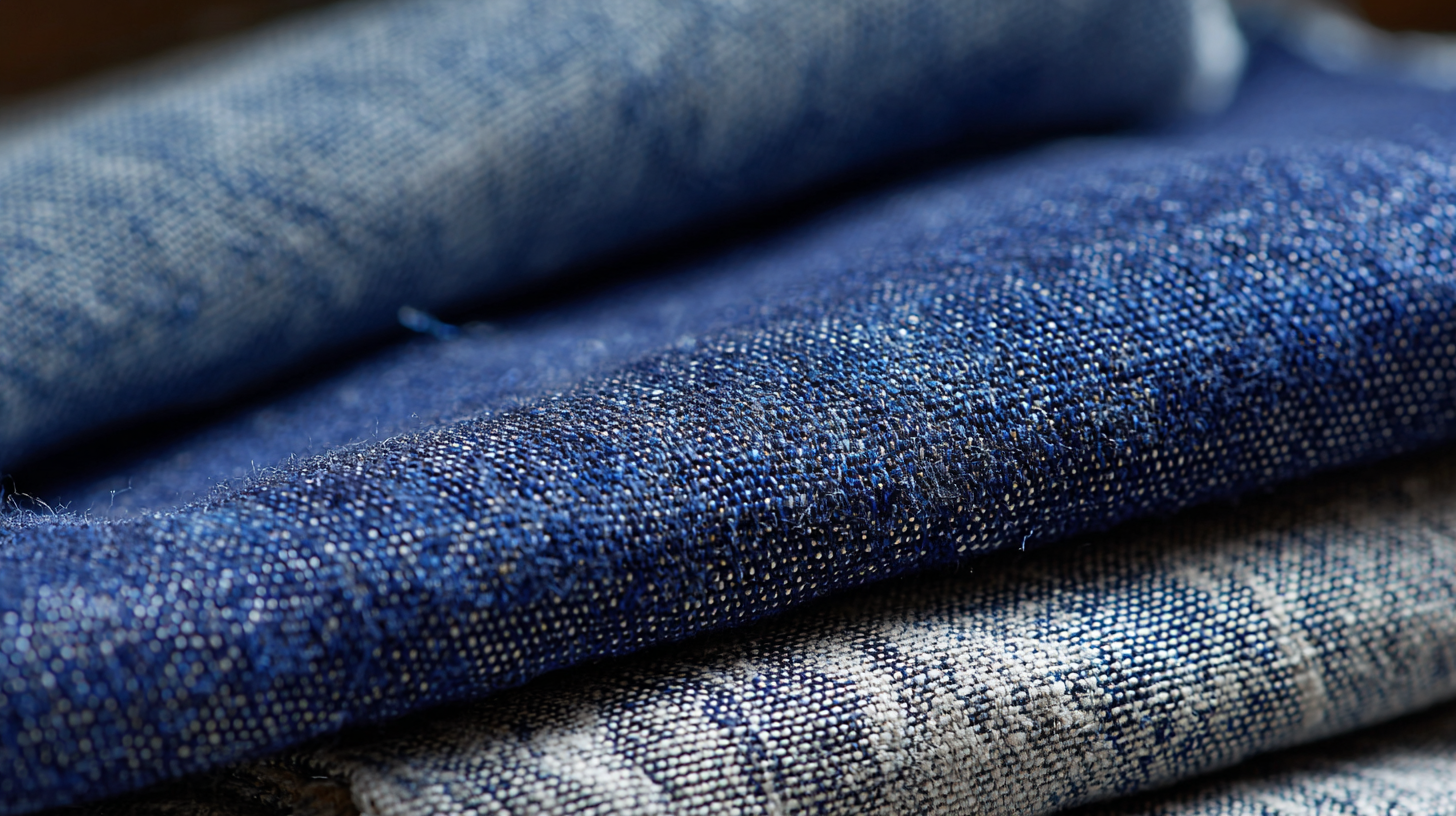
As sustainability becomes a key factor in purchasing decisions, brands that utilize recycled denim are well-positioned to attract conscientious consumers. This trend is particularly prominent among younger demographics, who are more likely to support companies that demonstrate a commitment to sustainable practices. By offering products made from recycled denim, brands tap into this consumer demand, providing stylish, responsible options that resonate with eco-conscious shoppers, ultimately transforming the landscape of the denim industry.
The fashion industry is increasingly recognizing the importance of sustainability, and recycled denim fabric is emerging as a key player in this movement. With consumers becoming more eco-conscious, brands that market recycled denim as an eco-friendly choice can effectively appeal to a growing demographic willing to invest in sustainable options. According to a recent report by the Global Fashion Agenda, the sustainable apparel market is projected to reach $8.25 billion by 2023, reflecting the shifting consumer attitudes towards environmentally friendly products.
To effectively position recycled denim, brands can employ various marketing strategies that highlight its environmental benefits. For example, emphasizing that recycling one pair of jeans can save approximately 1,800 gallons of water—enough to fill a hot tub—can resonate strongly with eco-aware consumers. Additionally, leveraging certifications such as Global Recycled Standard (GRS) or the Organic Content Standard (OCS) can enhance credibility, reinforcing a commitment to sustainability. With over 70% of consumers indicating they would pay more for sustainable brands, businesses that embrace these strategies not only improve their marketability but also contribute positively to global sustainability efforts.
| Benefit | Description | Environmental Impact |
|---|---|---|
| Reduced Waste | Using recycled denim reduces the amount of textile waste in landfills. | Decreases land pollution and conserves space. |
| Resource Conservation | Recycling denim conserves water and energy compared to producing new fabric. | Significant reduction in water usage during production. |
| Lower Carbon Footprint | Utilizing recycled materials can lead to lower greenhouse gas emissions. | Helps in combating climate change by reducing overall emissions. |
| Promotes Circular Economy | Encourages the reuse and recycling of resources in the fashion industry. | Supports sustainable practices and reduces resource depletion. |
| Consumer Appeal | Recycled denim products attract environmentally conscious consumers. | Encourages eco-friendly purchasing decisions and enhances brand loyalty. |
